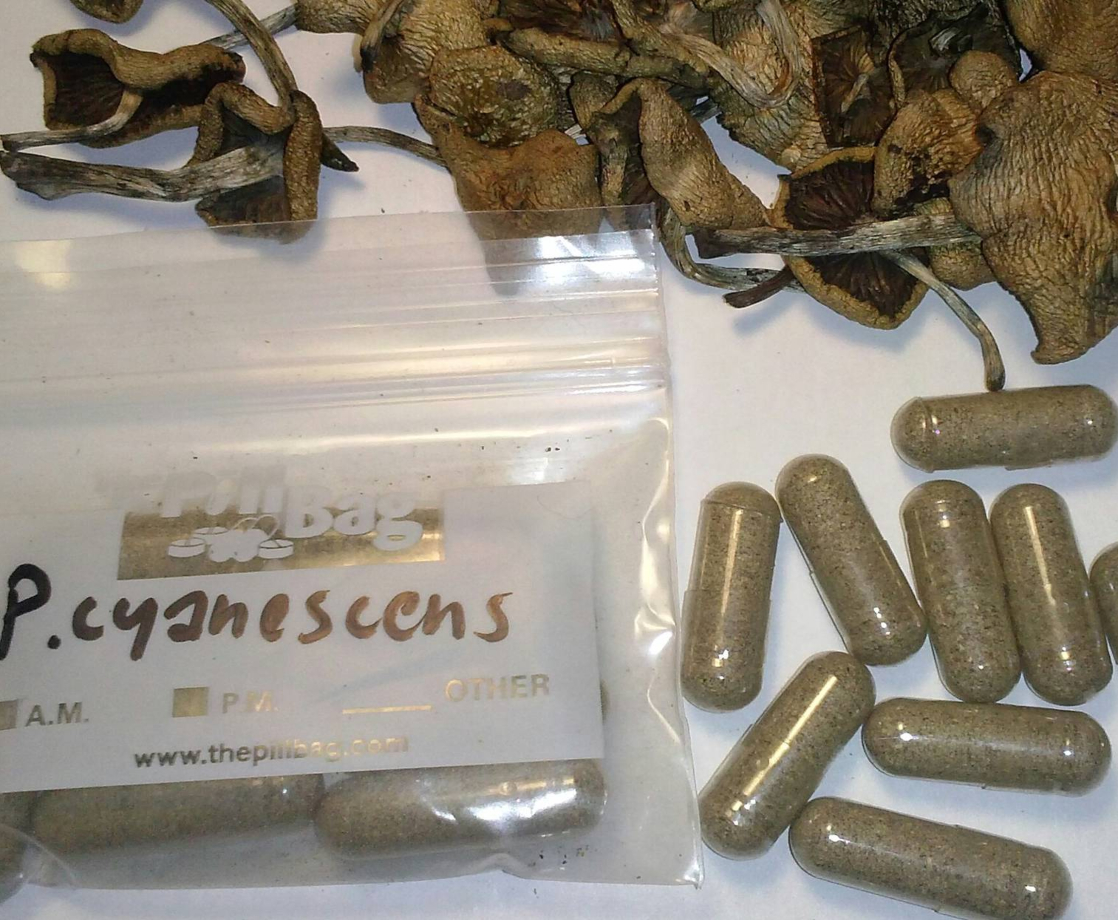Could the key ingredients in psychedelic mushrooms promote weight loss, healthier dietary choices, and prevent the onset of type 2 diabetes? That’s what one Canadian company is claiming in a new US patent filing.
The patent, filed by Yield Growth’s American subsidiary, Flourish Mushroom Labs, details a recipe for making a pill from psilocybin and psilocin, two shroom compounds responsible for making humans (and some animals) trip. The pill itself only includes microdosed amounts, or roughly a tenth of the so-called “recreational dose,” so anyone who takes it shouldn’t see their food breathing or their wallpaper designs coming to life.
According to a press release, psilocybin and psilocin use “results in an overall weight loss in individuals by reducing food cravings, counteracting compulsive overeating, and aiding in improving quality of diet by altering food choices.” These shroomy compounds can also increase an individual’s metabolism, which could lead to weight loss and better dietary control.
However, psilocin and psilocybin are not approved medications in either Canada or the US. While there is at least one shroom dispensary in Canada operating on the gray market, the US FDA recently greenlit two fast-tracked studies for psilocybin as a treatment for depression and anxiety, paving the way for legal shroom-based pharmaceuticals in the not-too-distant future.
Ironically, psilocybin and psilocin may be able to treat another eating disorder: anorexia nervosa, which is caused by eating too little food to the point of starvation. Research indicates that psilocybin does not necessarily increase or decrease appetite by default (unlike, say, weed), but rather these shroomy compounds facilitate a “blank” mental state where the brain essentially resets itself, allowing the individual to consciously will a new state of mind into being.
But does microdosing, which this invention relies on, actually work? Anecdotal evidence suggests that microdosing prevents full-blown trips while still providing the psychedelics’ medicinal and psychoactive benefits, but there is no scientific consensus as to whether microdosing actually does anything or if it’s merely placebo. Currently, a New Zealand research group is investigating whether microdosing LSD, another psychedelic compound, improves focus, mental aptitude, or mood.
Regardless of whether Flourish Mushroom Labs’ shroom pill actually does anything, the company’s patent signals a massive sea change regarding a non-existent but potentially explosive legal psychedelics industry. Pharmaceutical companies began investing in psilocybin and LSD research years ago, and there’s a venture capitalist firm devoted entirely to getting legal psychedelic products off the ground. A coffee company in Denver, Colorado is looking into ways to infuse coffees and teas with psilocybin, and a Hawaiian company just launched that purports to be the world’s first psychedelics lifestyle brand.
So, here’s to psychedelics riding on the coattails of cannabis legalization. After all, we already know that shrooms are much, much safer than alcohol, tobacco, and many pharmaceuticals that are currently on the market.
Follow Randy Robinson on Twitter











